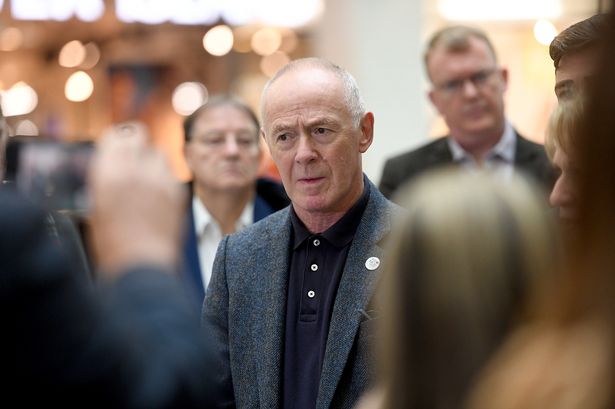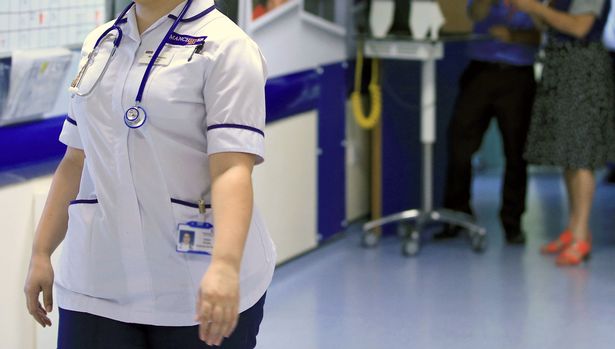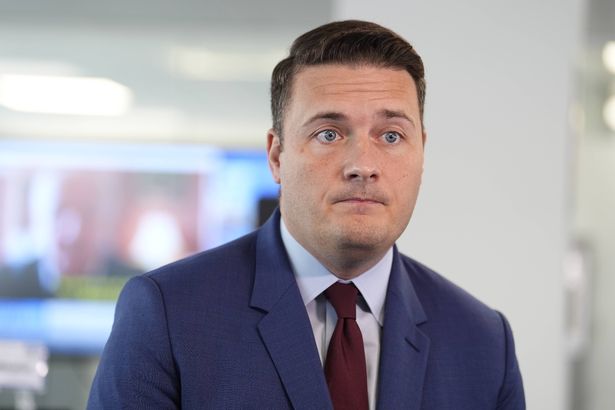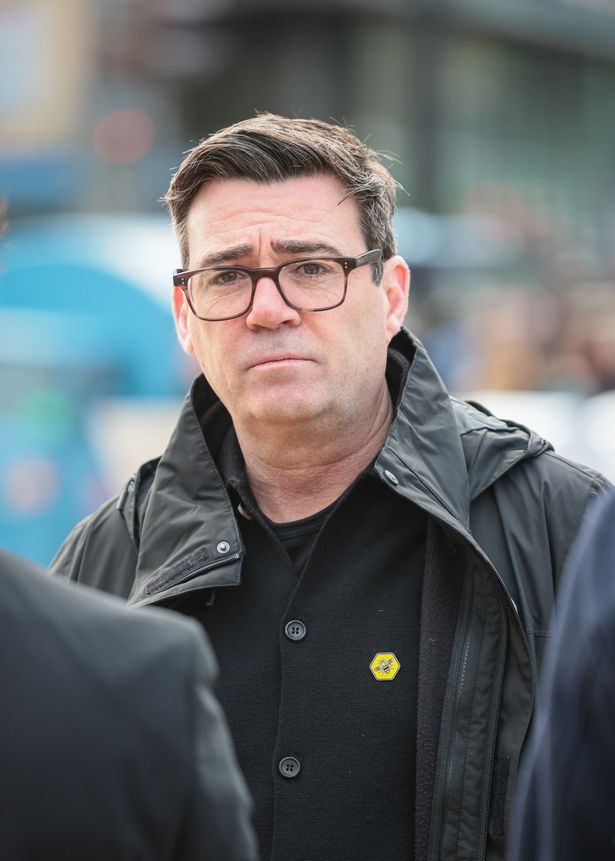As many as 400 NHS employees in Greater Manchester will be made redundant by April – but health bosses say they’re being left in an ‘impossible situation’ as the government has refused to approve a voluntary redundancy scheme (Image: Manchester Evening News)
(Image: Manchester Evening News)
As many as 400 NHS employees in Greater Manchester will be made redundant by April, the region’s health chiefs have confirmed.
But health bosses, including Greater Manchester Mayor Andy Burnham, have railed against the government, saying they are stuck in an ‘impossible situation’ as the government ‘will not approve’ plans for a voluntary redundancy scheme.
The leaders say it’s ‘impossible’ to make the deep cuts being demanded by the government without voluntary redundancies. But they say they have no way of starting that process without government funding, which is currently being denied.
The figures come after the government announced in spring that the country’s 42 regional health boards, responsible for planning and paying for health care services, will have to lose around half of their 25,000 staff.
Earlier this year, NHS Greater Manchester, the region’s oversight body, was told to cut its costs by 39 per cent and save £41 million from its £106m staff budget under the government’s reforms.
Get news, views and analysis of the biggest stories with the daily Mancunian Way newsletter – sign up here
On Friday, NHS Greater Manchester leaders told the Greater Manchester Integrated Care Partnership board meeting that as many as 400 staff could be made redundant by April 1 2026.
Chair of the organisation, Sir Richard Leese, said: “We currently find ourselves in a situation that’s almost beyond belief. We’re in a very Kafka-esque situation as an ICB.
“One of the requirements placed upon all ICBs was to reduce their costs. Not just management costs, programme costs as well.
 NHS Greater Manchester employs 1,400 staff in the region(Image: PA)
NHS Greater Manchester employs 1,400 staff in the region(Image: PA)
“We’re expected to reduce our costs by 39 per cent. That equates to somewhere between three to four hundred staff. This has to be in place by April 1 of next year before the budget provision for all of that is removed and it goes.
“It effectively means, in absolute terms, the only employee of the ICB who can guarantee to still have a post is the chief executive.
“It’s a dreadful position for our staff.
“We are trying to deal with that. Positive work has gone into proposals for new structures that offer a positive way forward, they have to be underpinned by how we reduce staffing in a way that is fair.”
Sir Richard Leese told the board that the region’s NHS wants to launch a proposed voluntary redundancy scheme in September – but is being hamstrung by the government.
“There is no other realistic way of getting down to that running cost target without a successful voluntary redundancy scheme,” Sir Richard told the board.
“It cannot be done without.
“We were hoping to agree how we might fund that voluntary redundancy scheme and submit a proposal in the very near future for approval by the DHSC and Treasury.
“We received a letter this week, we have been told in writing, basically, if we submit a scheme it will not be approved at the moment.
“We will continue with the planning process, we will continue to make sure that we are ready.
“But we, effectively, have been told that we have to reduce our staff but we’re told that we will have no device in supporting you in doing that. Which is why I describe the situation as Kafka-esque.
“We currently face an impossible situation.”
 Health Secretary Wes Streeting suggested that redundancy payouts for the sweeping NHS cuts across the country being demanded by the government could reach £1bn(Image: PA Wire/PA Images)
Health Secretary Wes Streeting suggested that redundancy payouts for the sweeping NHS cuts across the country being demanded by the government could reach £1bn(Image: PA Wire/PA Images)
After the sweeping NHS cuts were announced earlier this year, Health Secretary Wes Streeting was asked by MPs whether he recognised a reported figure that the total cost of redundancy payouts could reach £1bn nationally.
He said that it was too early to know the precise numbers, but that £1bn was not an ‘unreasonable ballpark figure’.
Greater Manchester Mayor Andy Burnham, who is also the co-chair of the Greater Manchester Integrated Care Partnership, agreed with Sir Richard.
He told the board meeting: “I have expressed solidarity with the staff in this position who are still doing critically important jobs in Greater Manchester.
“The numbers that have been come up with, what relation has been made to the crucial roles that the people affected by this are doing?
“It doesn’t feel to me that it’s been done in the right way. Consequently, people are in a limbo period that must be very hard.”
Mayor Burnham said Greater Manchester will have to make decisions that fit the complexities of a region disproportionately disadvantaged when it comes to serious illnesses and health care funding.
 (Image: Kenny Brown | Manchester Evening News)
(Image: Kenny Brown | Manchester Evening News)
“We will, in the end, do what’s right for us – irrespective in some ways of what filters out from the national level,” he said.
“We will always, as a system, do the best we can to support people, [and to] make sure the value of people’s roles is understood.”
Although Greater Manchester enjoys devolution powers over its spending decision, bosses say the circumstances of the region are not reflected in the money it is given from the national level.
In July, chief executive of NHS Greater Manchester Mark Fisher told the Manchester Evening News: “The three integrated care boards in the north west are all probably among the most financially challenged systems in the country,” continued Mr Fisher.
“That’s not because leaders in the system are less competent than leaders anywhere else in the system, I don’t believe that. That’s simply not the case.
“We all think that if you go to areas of deprivation – whether that’s in Greater Manchester, in Liverpool, in other places – the levels of deprivation are not fully reflected in the funding formula.
“We need the allocation formula changed to recognise the difficulties of systems like ours that have high levels of deprivation have to deal with on a day-to-day basis.”
Join our Family WhatsApp group HERE
NHS Greater Manchester employs 1,400 staff in the region, including human resources staff, finance workers, IT staff, patient-facing nurses, and many people involved in planning, purchasing and monitoring both care in hospitals and in the community.
Sir Keir Starmer also announced in March that the national body responsible for overseeing the health service, NHS England, would be shut down, and its functions brought back under the Department of Health and Social Care for the first time in 13 years.
A Department of Health and Social Care spokesperson said: “We have invested an extra £26 billion to fix the broken health and care system we inherited, and through our Plan for Change we are determined to tackle inefficiencies and drive-up productivity in the NHS.
“Patient safety is our priority, and we have underlined the need to cut bureaucracy to invest even further in the front line, so we can support hard-working staff and deliver a better service for patients and taxpayers’ money.”
The government has added that NHS England – expected to be wound up – will ‘be providing further information on expectations on how the reduction [of the regional boards] should be delivered’.
